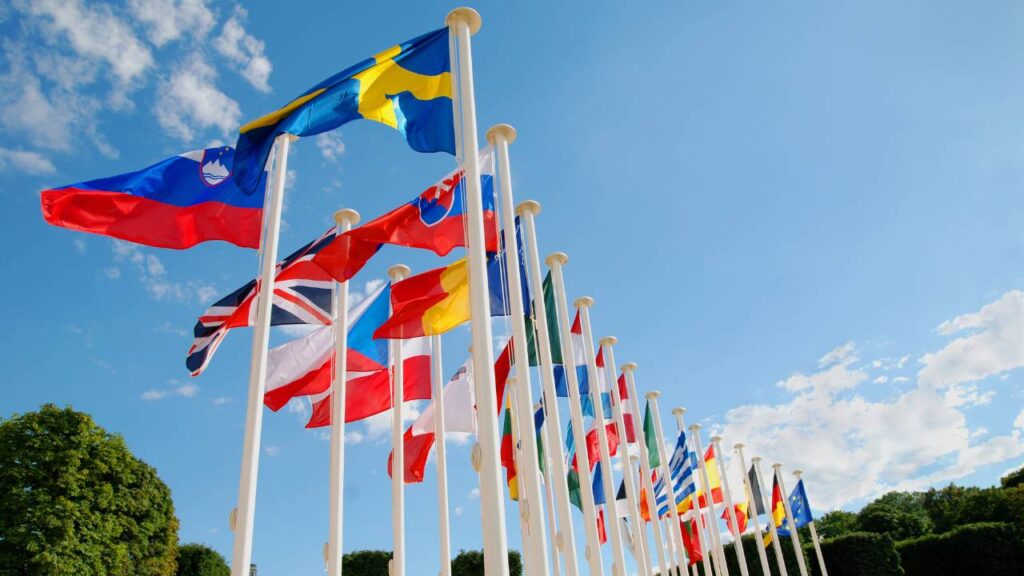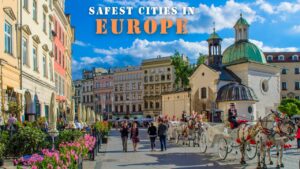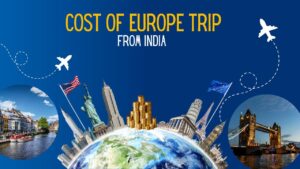As a professional travel blogger and frequent traveler across Europe, I’ve seen borders tighten and reopen. But 2025 is turning out to be a golden era for international travel. Many European nations are now actively simplifying their entry policies, digitizing visa processes, and encouraging global mobility like never before. A short-term tourist, a remote worker, or a long-stay explorer, knowing which European countries in 2025 are the easiest to enter can help you plan smarter, travel smoother, and save time, money, and stress.
This guide breaks down the most entry-friendly European destinations in 2025, considering visa rules, border efficiency, digital systems, and new programs introduced post-ETIAS implementation. Planning a trip this year, this detailed overview is all you need to choose your next stop with confidence.
Why Entry Policies Are Essential in 2025
In 2025, the travel landscape in Europe is shaped by post-pandemic lessons, tech adoption, and the growing digital nomad community. Governments across Europe now view international visitors not just as tourists, but as contributors to local economies. The Schengen Zone still covers 27 countries, but many have now introduced remote work visas, startup visas, and long-term digital stay permits to attract a more mobile population.
The rollout of ETIAS (European Travel Information and Authorization System), similar to the U.S. ESTA, has made border checks faster and more consistent for non-EU travelers. Most travelers now get approved online within hours, avoiding long embassy waits. Some countries have even launched new e-visa platforms, automating approvals and reducing visa errors. As a result, visa rejection rates have fallen across several member states.
Easy Visa Countries in Europe for Indians, Filipinos & Non-EU Citizens
Growing geopolitical instability in some parts of the world has prompted European nations to ease entry requirements for certain nationalities, making Europe more accessible than ever for travel, work, and lifestyle migration.
1. Portugal – Most Open Gateway to Western Europe
Portugal has repeatedly ranked as one of the most welcoming European countries in 2025, especially for non-EU travelers. Visa-free entry is granted for 90 days to citizens of over 90 countries. In addition, Portugal offers a robust D7 Passive Income Visa for retirees and financially independent individuals, and a Digital Nomad Visa for remote workers with stable income. These visas now have faster approval windows (as quick as 30 days) and less complex documentation compared to previous years.
Portugal has also streamlined its SEF (Foreigners and Borders Service) process by moving more applications online, making it easier for foreigners to extend their stay or transition into long-term residency. The country actively promotes “soft landing programs” for expats, including free language lessons and tax incentives.
At the Border:
Lisbon and Porto airports are equipped with biometric gates and ETIAS fast lanes. Travelers report quick entry even during peak seasons, with most processing completed in under 15 minutes. Officers are usually multilingual and offer assistance in English.
Extra Insight:
Portugal isn’t just easy to enter—it’s one of the best places to live. With a mild climate, affordable healthcare, excellent internet, and safety rankings among the best in Europe, Portugal is often the top choice for long-term visitors and digital workers.
2. Greece – Sun, History, and Visa Simplicity
Greece has repositioned itself as a digital-friendly and tourist-optimized destination. With its updated Digital Nomad Visa, Greece now offers a 12-month renewable visa to non-EU remote workers earning at least €3,500/month. Unlike some EU countries, Greece accepts applications online and provides embassy appointments within 2–3 weeks, making the entire process efficient.
Tourists from over 90 countries can enter visa-free for up to 90 days, and ETIAS approval is typically instant. Greece has also introduced e-gates at its major airports, allowing faster passage for digitally approved travelers. The country is also working on a multi-entry tourist visa allowing up to 180 days per year for select nations.
At the Border:
Athens International Airport and Thessaloniki Airport have significantly improved their immigration facilities. Officers are professional and accommodating, especially to tourists who arrive prepared with basic documents like hotel bookings and return tickets.
Extra Insight:
Beyond the entry ease, Greece offers unbeatable lifestyle value. From low-cost islands to Athens’ coworking culture, it’s ideal for both short vacations and year-long workations.
3. Georgia – Europe’s Most Open Door for Long Stays
Though not part of the EU, Georgia is arguably one of the easiest European countries in 2025 to enter and stay in for an extended period. Citizens from 90+ countries can stay visa-free for up to 365 days, a unique advantage among European destinations. No ETIAS, no pre-approval, no visa sticker. You simply land and get stamped in.
Georgia also offers a Remotely from Georgia program for remote workers, and the government recently launched a dedicated mobile app for travelers to check entry rules, visa extensions, and local registration options. The tax system is foreigner-friendly, especially for freelancers earning income from outside Georgia.
At the Border:
Tbilisi Airport is efficient, and land crossings from Armenia or Turkey are smooth. Immigration officers are used to long-stay travelers and rarely ask many questions.
Extra Insight:
If you need a visa-free destination to spend a year in Europe without paperwork headaches, Georgia is your best bet. Plus, it’s incredibly affordable, with monthly living costs under $1,000 in most cities.
4. Croatia – Most Seamless Schengen Addition
Croatia officially joined the Schengen Area in 2023 and adopted the Euro in the same year. By 2025, it has become one of the most stable and accessible entry points for tourists and digital workers alike. ETIAS approval is required but typically granted within hours. Visa-free stays of up to 90 days apply to travelers from 90+ countries.
The country also offers a popular Digital Nomad Visa that allows non-EU remote workers to stay for up to one year. The minimum income threshold is lower than in most of Western Europe, and applications can be submitted entirely online.
At the Border:
Zagreb, Split, and Dubrovnik airports have e-gates and fast-track lanes for Schengen and ETIAS holders. Border agents are helpful and usually only ask for a passport and proof of accommodation.
Extra Insight:
With stunning Adriatic coastlines, low living costs compared to Western Europe, and a rapidly growing startup ecosystem, Croatia is ideal for visitors who want extended stays without complexity.
5. Estonia – Digital Nomad’s Dream
Estonia continues to lead the way in digital governance, and this reflects in their immigration systems. The Estonian Digital Nomad Visa allows remote workers to legally live and work in the country for up to a year. Application is online, with a response time of 30–45 days.
Estonia also runs the e-Residency program, which allows global citizens to open EU-based businesses remotely. While it doesn’t grant physical residence, it does simplify visa approvals for business purposes. ETIAS applies for short stays, and approvals are fast and automatic in most cases.
At the Border:
Tallinn Airport uses smart technology to automate arrivals. For ETIAS travelers, customs checks are smooth, with dedicated kiosks that scan passports and travel authorization codes.
Extra Insight:
If you’re a tech entrepreneur or remote worker, Estonia offers the most integrated digital services in Europe—ideal for launching a business or starting a new remote lifestyle.
6. Albania – Longest Visa-Free Stays for Americans
Albania is becoming a hotspot in 2025 for budget travelers and digital nomads. What makes it special is its 365-day visa-free policy for U.S. citizens, unmatched in Europe. Citizens from the UK, Canada, Australia, and most of the EU also enjoy flexible 90–180 day stays depending on nationality.
The country recently introduced a Digital Nomad Visa requiring only €9,800 annual income, one of the lowest thresholds in Europe. The application can be completed online, and approval takes about 15 working days. Albania has also launched a bilingual visa center and digital portal for smoother processing.
At the Border:
Tirana Airport is expanding and now features express lanes for frequent travelers. Most arrivals are cleared within 10 minutes.
Extra Insight:
Albania offers unmatched freedom, low cost of living, beautiful beaches, and a pro-remote work attitude. It’s perfect for long-term stays without the EU red tape.
7. Montenegro – Gateway to the Balkans with Simplified Rules
Montenegro is one of the easiest non-Schengen European countries in 2025 to enter, especially for travelers who want to visit Southern Europe without crowds or complications. It offers visa-free stays up to 90 days for most Western countries and recently launched a digital portal for faster visa applications.
A new Digital Nomad Visa has been rolled out in 2025, offering 12-month renewable stays for remote workers with modest income. Montenegro also has tax incentives for new residents and business owners.
At the Border:
Podgorica and Tivat airports are modernizing, with digital kiosks and minimal waiting times. Border crossings from neighboring countries are efficient and traveler-friendly.
Extra Insight:
If you want scenic landscapes, lower living expenses, and an emerging nomad scene without strict entry conditions, Montenegro is a must-visit in 2025.
Europe Student Visa: Easiest Countries to Get Approved in 2025
These countries not only make arrival easier but also welcome you with beautiful scenery, cultural diversity, and affordable living—all wrapped in friendly border policies.
FAQs
1. Which European countries are easiest to enter in 2025?
Countries like Portugal, Greece, Croatia, Estonia, Albania, Montenegro, and Georgia offer some of the easiest entry requirements, including visa-free access and digital nomad visas.
2. What is ETIAS, and how does it affect travel to Europe in 2025?
ETIAS (European Travel Information and Authorization System) is an online pre-authorization for travelers from visa-exempt countries. It speeds up border entry and is mandatory for most travelers visiting Schengen countries starting in 2025.
3. Are there any European countries offering visa-free entry for a full year in 2025?
Yes, Georgia allows citizens from over 90 countries to stay visa-free for up to 365 days, making it one of the most accessible long-stay destinations in Europe.
4. Which European countries have digital nomad visas in 2025?
Portugal, Greece, Croatia, Estonia, Albania, and Montenegro offer digital nomad visas that allow remote workers to live and work legally for up to a year or more.
5. Do all European countries require ETIAS approval in 2025?
No, ETIAS applies only to Schengen Area countries. Non-Schengen countries like Georgia and Albania do not require ETIAS but may have their own entry rules.
6. Can U.S. citizens enter European countries visa-free in 2025?
Yes, U.S. citizens can enter most Schengen countries visa-free for up to 90 days. Some countries like Albania offer even longer visa-free stays.
7. How long does it take to get ETIAS approval?
ETIAS approval is usually granted within minutes or hours after applying online, making entry faster and more efficient.
8. Are there new entry policies for tourists in Europe in 2025?
Yes, many countries have introduced simplified digital visa processes, longer digital nomad visas, and streamlined border controls to encourage tourism and remote work.
9. Is it easier to enter Schengen or non-Schengen countries in Europe in 2025?
Non-Schengen countries like Georgia and Albania often have simpler visa-free policies and longer allowed stays, making them easier for long-term visitors in 2025.
10. What documents do I need for easy entry to European countries in 2025?
Generally, a valid passport, ETIAS approval (if required), proof of accommodation, return ticket, and proof of sufficient funds or income for digital nomad visas are needed.






